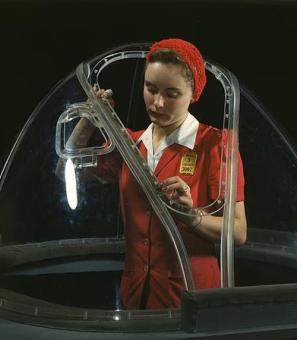Duke Ellington’s Education at Frank Holliday's Pool Hall
In the years between 1880 and 1920, the Shaw neighborhood of north-central Washington was a focal point of African-American life and culture. Entrepreneurs flocked to the neighborhood during this period, and some 300 African-American businesses were established, including printing companies and newspapers. In 1910, the Howard Theater was founded, and it soon became the premier black theater in the country.
It was in this vibrant time and place in Black Washington that Edward Kennedy Ellington emerged and came into his own as a musician. Ellington, born in 1899, was raised in a household that valued hard work and education. Both his parents were pianists and exposed their son to art and culture at an early age. He started taking piano lessons at age seven, and his fine dress and manners earned him the nickname Duke from his childhood friends.
Ellington was a fixture in the Shaw neighborhood as a kid, but it wasn't at the Howard where young Ellington remembers his formative years as an artist. It was the pool hall next door that shaped the Duke’s musical sensibilities.
Frank Holliday’s Pool Hall, located at what is now 624 T Street NW, was right across an alley from the Howard. The building was originally two separate row houses dating back to 1879. In 1910, it underwent a major conversion that opened up the first floor to become a restaurant and pool hall.[1] But it wasn’t an ordinary pool hall, at least not to a young Duke Ellington.
Ellington writes in his autobiography, “Music is My Mistress,” “It was the highspot of billiard parlors, where all the kids from all neighborhoods came, and the great pool sharks from all over town. Guys from all walks of life seemed to converge there: school kids over and under sixteen; college students and graduates, some starting out in law and medicine and science; and lots of Pullman porters and dining-car waiters.”[2]
These men came rolling in from cities all over the country, and they brought with them stories of the world outside the Duke’s neighborhood and outside Washington. On any given night, he might run into someone fresh off the train from Cleveland, Chicago, or New York. This excited Ellington, as did the musicians who would come into Holliday’s from the Howard across the alley and elsewhere around the city.
Ellington was writing original compositions by his early teens, but he was not confident that the piano was right for him. This began to change when he started spending time at Holliday’s. He would hang around and listen to musicians play impromptu sets and pepper the piano players with questions. They taught him new things, and he developed a renewed fascination with the piano.
Ellington credited his time at Holliday’s as being as educational as any time he spent at school. “Frank Holliday’s poolroom sounded as though the prime authorities on every subject had been assembled there. Baseball, football, basketball, boxing, wrestling, racing, medicine, law, politics, everything was discussed with authority. Frank Holliday’s poolroom was a great place.”[3]
Ellington listened to and learned from a long list of musicians at Holliday’s, and it helped to shape his musical style in the years to come.
“Jazz is not something that comes from reading music only,” says author Kim Bender. “[Ellington] could meld different styles from all these different people, from people who were making it up on the spot. He had every kind of technique to learn from in this place.”[4]
Ellington also developed a head for business during his time at Holliday’s, according to John Hasse, author of the Ellington biography, “Beyond Category: The Life and Genius of Duke Ellington.” This was essential to his staying power as a popular musician for decades. It takes creative talent to become a successful artist, but it takes a strong business sense to remain one.
“Ellington was a sharp businessman and perhaps he got some of that skill from his father,” says Hasse. “He also hung out with a fellow named Black Bowie who was a real sharp¾a real hustler. And who knows, maybe Ellington picked up some of his talent for hustling of business by hanging out at Frank Holliday’s pool room.”[5]
Ellington relocated to New York City in the early 1920s to advance his music career, leaving Holliday’s Pool Hall behind for music stardom. Holliday’s suffered a ceiling collapse in 1923, and in 1928, the building was left vacant. The building was later demolished and replaced with a one-story structure that housed many businesses over the years, but none quite so unique as Frank Holliday’s.
Footnotes
- ^ See “The Duke’s Incubator” at The Location blog.
- ^ Ellington, Duke, “Music is My Mistress,” Da Capo Press, New York, 1976, p. 23.
- ^ Ellington, “Music is My Mistress,” p. 30.
- ^ Quoted in Rebecca Sheir, “The Location: The Pool Hall That Inspired Father of D.C. Jazz,” WAMU, American University Radio.
- ^ Quoted in interview with Hedrick Smith, “Duke Ellington’s Washington,” PBS.org.


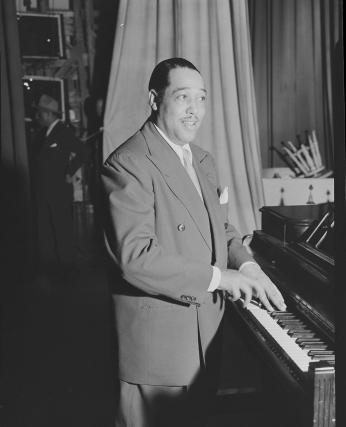
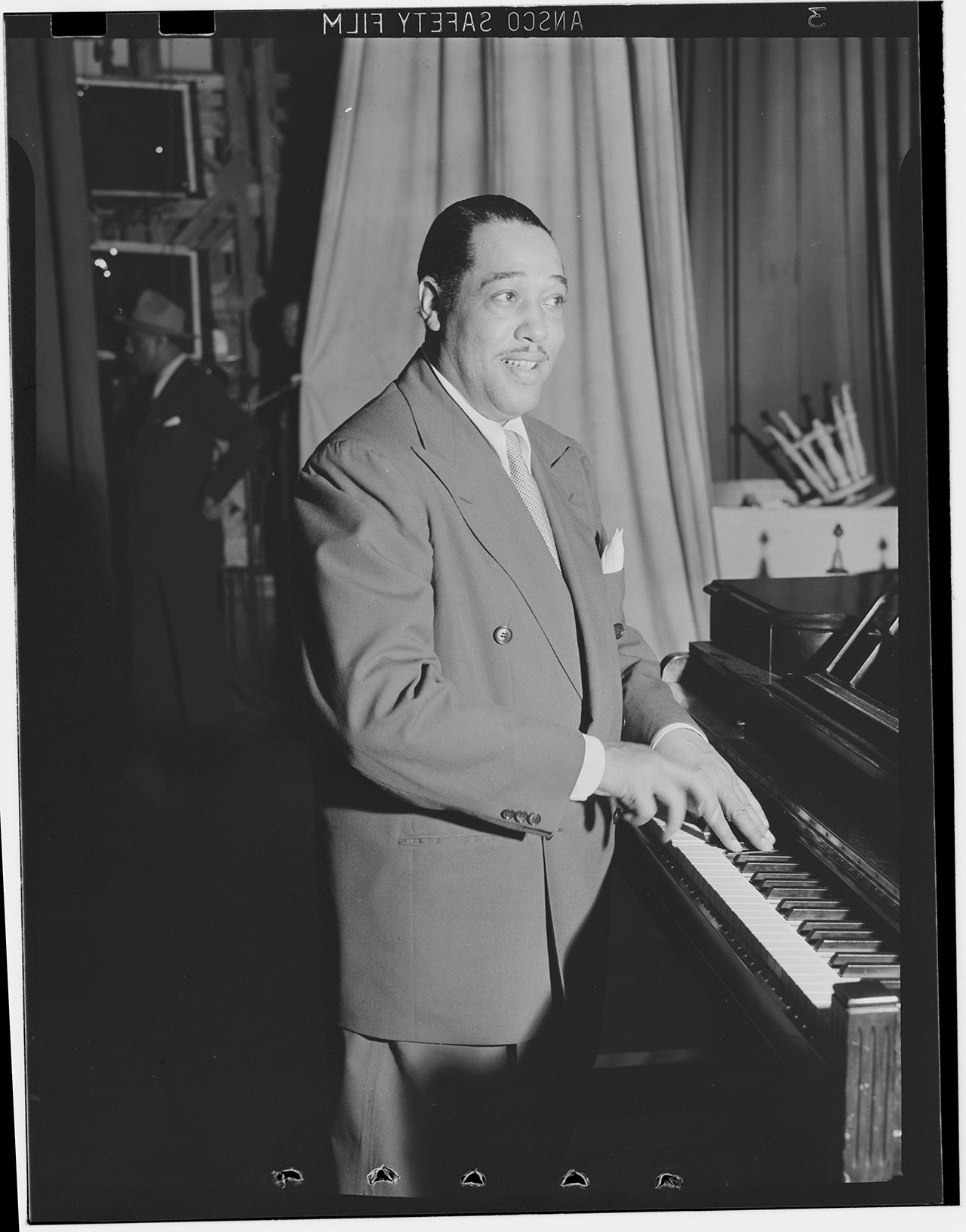
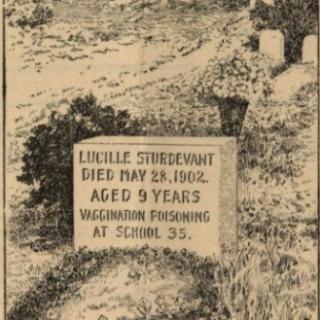
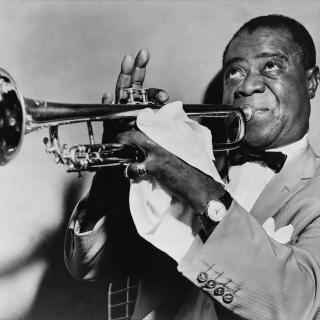
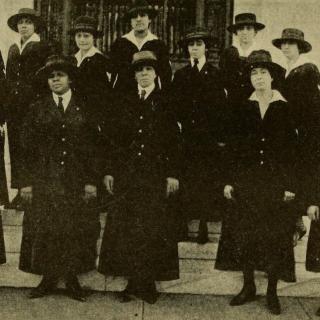
![Sketch of the mythical fuan by Pearson Scott Foresman. [Source: Wikipedia]](/sites/default/files/styles/crop_320x320/public/2023-10/Goatman_Wikipedia_Faun_2_%28PSF%29.png?h=64a074ff&itok=C9Qh-PE1)











